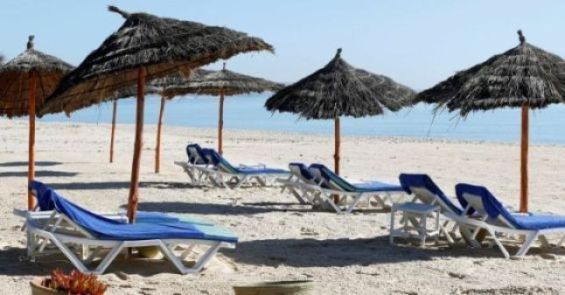A recent World Bank study has warned that Morocco could see a decline in tourist arrivals due to climate change, which would negatively impact jobs tied to coastal tourism.
This decline in visitors could lead to a reduction in income from accommodations, food services, transportation, and the sale of souvenirs and daily goods. The study also noted that Morocco’s tourism spending and response patterns are similar to those of other countries in the same climate zone.
The study projected that climate change could cause an 8% to 18% drop in tourist arrivals, which may result in a 14% to 32% loss in jobs within the hotel and restaurant sectors by 2035. Other subsectors, such as arts and entertainment, transportation, and services, would also be significantly «affected by reduced tourist expenditure due to climate change».
The World Bank identified Morocco as a «climate hotspot», where temperatures have risen by 0.2°C per decade on average since the 1960s—double the global average of 0.1°C per decade. According to the Intergovernmental Panel on Climate Change, the «annual mean surface temperature of the Mediterranean region is already 1.5°C warmer than pre-industrial levels», and extreme weather events such as heatwaves and droughts are becoming more frequent and severe, increasing the risk of forest fires.
Morocco's coastline vulnerable to climate change
The study emphasized that Morocco's coastline, which hosts around 80% of the country's industries and contributes roughly 60% of its GDP, is particularly vulnerable to climate change. Between 1984 and 2016, coastal erosion averaged 14 centimeters per year along the Mediterranean coast and 12 centimeters per year along the Atlantic coast—nearly double the global average.
In addition to damaging key tourism infrastructure, coastal erosion and shifting weather patterns may alter tourist behavior. Some studies suggest that by 2030, the Mediterranean could become too hot for tourism, with nearly 70% of tourists indicating that they would change their destination if temperatures became unbearable. Furthermore, over 80% of tourists said they would consider alternative destinations if beach erosion and damage became severe.
The findings highlight the need for Morocco’s coastal tourism sector to develop greater resilience, particularly for micro, small, and medium-sized enterprises (MSMEs). Small businesses, which are more vulnerable to being forced out of the market, often lack the financial capacity to withstand significant disruptions.
Building this resilience will require adapting tourist accommodations to cope with rising temperatures and shifting coastal tourism toward more sustainable and resilient models.
The study offers several recommendations to help the Moroccan government implement its ambitious Tourism Strategic Roadmap for 2023-2026. These include targeted investments, improvements in policy and institutional frameworks, the development of ecotourism, and the use of traditional building materials and cooling technologies.




 chargement...
chargement...












